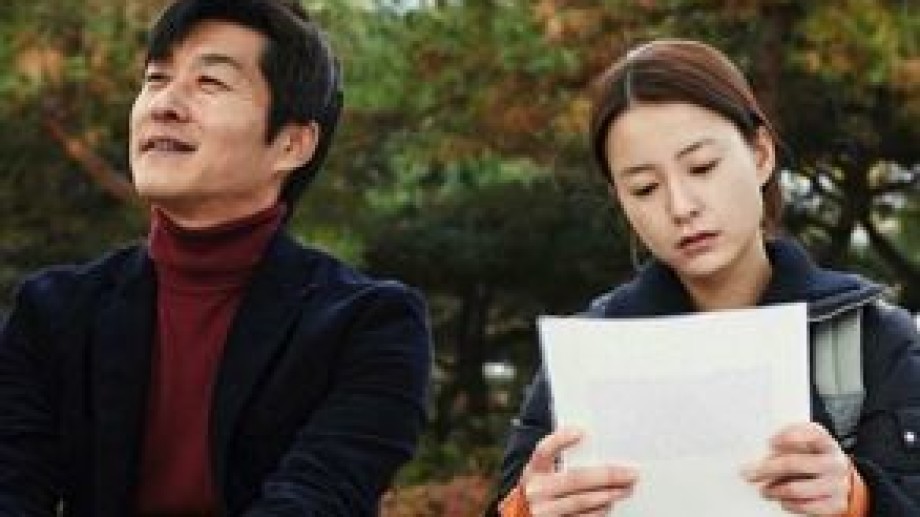
A scene from Hong Sang-soo's Locarno film, Our Sunhi (U ri Sunhi).
Ingrid Raison is a member of the second annual Critics Academy at the Locarno Film Festival. In this dispatch from the festival, she looks at Korean director Hong Sang-soo's Our Sunhi and its universal comic elements, comparing the film to the work of French filmmaker/actor Jacques Tati.
“She has artistic sense, she is a little odd, she is idealist, she is reserved but she is brave.” This is how Donghyun (Kim Sangjoong) describes his former student, Sunhi (Jung Yumi), in a recommendation letter in a pivotal moment in Korean director Hong Sang-soo's Our Sunhi (U ri Sunhi), which had its world premiere at the recent Locarno Film Festival. A succinct statement, it works as a litany throughout the entire movie. A few words to which Sunhi and the men she loves will constantly come back to in defining her personality.
In many of Hong's films, characters consistently experience tumultuous relationships as they seek answers to life and identity. As Locarno noted about the film on their official website, “In Hong’s universe, men, in particular, are compelled to define women in a misguided search for truth, which reveals more about themselves than the object of their desire.” Here, Sunhi asks others questions about herself that she cannot answer. Throughout the movie, she desperately looks for her image through the perceptions of others.
A film major graduate, Sunhi wishes to pursue her studies in the U.S., leading her to request a recommendation letter from her professor, touching off a series of events. Two men she used to love burst into her life again: her ex-boyfriend Munsu (Lee Sunkyun) and Jaehak (Jung Jaeyoung), with whom she had an ambiguous relationship.

A scene from Hong Sang-soo's Locarno film, Our Sunhi (U ri Sunhi).
Sunhi’s awkward clumsiness, is not unlike that of French filmmaker and actor Jacques Tati's comic impulses in his 1958 film, Mon Oncle. In that film, his character Hulot collides with individuals and society. Hulot dismantles his sister’s house which is packed with modern gadgetry. Contrary to Sunhi, however, Hulot is self-absorbed. Both of them are unhappy with their environment but for different reasons. Sunhi can’t relate to the external world because she is out of touch with her own self, while Hulot is so absorbed by his own perception that he is directionless. Both characters are unwittingly laughable. Try as they might to fit in, they never find their place and that is the basis of their comical personalities.
There is a sense of absurdity that emanates from the situations they experience. In Hong Sangsoo’s film, comedy is rooted in repetition. Sunhi constantly refers to the letter from her professor, asking for her three suitors’ opinions, while sitting in a series of restaurants. Eventually, the three turn to each other to talk about her, driving a wedge between them and Sunhi. Tati, however, favors elaborate situation comedy. In one scene in Les Vacances de M. Hulot, het decides to go fishing and is literally eaten alive by the boat, sparking laughter from the audience.
Beyond the comical gimmickry or the whimsical discussions they stage, both of these directors aim for a deeper truth for their characters. Hulot’s actions usually illustrate Jacques Tati’s critical view on modernity. As for Hong Sangsoo, repetition enables him to de-emphasize words in order to focus on the breaches of his characters' personalities. Jacques Tati’s spirit definitely lingers in Hong Sangsoo's films.



